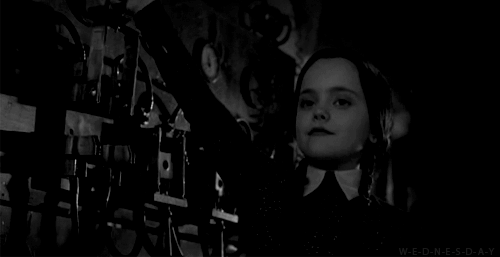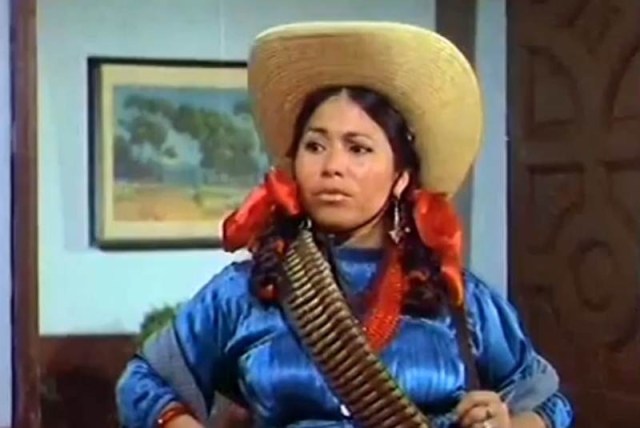feature image via shutterstock
The babelfish is a curious little fish described in Douglas Adams’ six-book trilogy, Hitchhiker’s Guide to the Galaxy. The idea behind it is that if you are a hitchhiker across many galaxies you can stick one in your ear you are able to understand anything said to you in any language. You know, science. If you can’t seem to get your hands on one, and are busy checking out the lesbian scene in Germany, Italy, Spain, Mexico or Japan here are a few words to help you along the way.
It took me a long time to verify that the following terms were actually used as casual slang, but the lines get a little blurred when I started to consider how words sometimes (especially reclaimed and empowered slang) evolve from oppressive language and slurs. No words included in this guide are intended to hurt, trigger or insult anyone, but are more a study about how far we, as a community, have come. Also, from what I can gather, trans and bi are both widely understood terms nowadays, but if you have any other turns of phrase from your queer corner of the Earth, leave them in the comments!
German
Adamstocher
(pronounced adams-toh-her)
Definition: Yup, this gem literally translates to Adams Daughter. (As in the Addams Family.)

Many think this particular turn of phrase started off as a derogatory term in the 60s, and was used to point out people that “looked like lesbians,” but has since been adopted and is now used casually as a descriptor for all lesbians to use – kind of like calling someone a “friend of Dorothy.” And I mean, who wouldn’t want to be Wednesday Addams?
Example:
“How about the cute girl at the bar? Is she an adamstocher?”
Bubi
(boo-bee)
Definition: Literally German for “little boy,” but slang tells us that bubi is a cute, diminutive version of saying someone is butch.
Incidentally, the german for butch is simply, butsch. Makes sense, since parts of English are clearly rooted in Germanic.
Example:
“That Ellen DeGeneres Gap Kids line is a bubi paradise.”
Büchsenmasseuse
(books-en-mah-ssuh-zeh)
Definition: Literally translates into “bush masseuse.” Admittedly not the classiest of terms, but still quality slang.
The origin of this word is easy to determine, and the crassness of the meaning can be misinterpreted easily. Context is so very important in language and turn of phrase, as we all know, so we should probably be careful about how we use this one.
Example:
“How long have you known you were a büchsenmasseuse?”
“Since the 4th season of Buffy.”
Hüftenwackler
(hoof-ten-vahk-ler)
Definition: Calling someone a hüftenwackler is essentially calling them a “hip jiggler.” Just another general term for calling someone a lesbian.
The best out of all the Shakira-inspired monikers, I’m told this is a very neutral term, but it’s not used everywhere. It seems that most of the hüftenwacklers are confined to Berlin and Cologne.
Example:
“Who’s that hüftenwackler talking to Carol?”
“Oh, that’s Therese.”
Jubelhure
(you-bell-hoo-reh)
Definition: A jubelhure is a lesbian who is no stranger to a good party. In other words, she can often be seen “pulling up to the club with her ceiling missing” (which someone said to me once, and it took me way too long to realize it just means 2Chainz was driving a convertible). Don’t expect a quiet afternoon at a quaint Munich coffee house with this girl. She’s probably still recovering from the night before.
This word is a derivation of jubel frau, proper German for “cheering woman,” it makes sense how the more colloquial version took to mean “party girl.” No one is sure how it got monopolized by the lesbians though.
Example:
“I’m so hungover, I went on a date with a jubelhure and poured myself into bed at 6am.”
Tiefseeforscherin
(teef-see-four-share-in)
Definition: I punched it into Google translate and it means, wait for it, “deep sea researcher.” Obviously, this term is embedded in innuendo and refers to a woman that likes to go down on other women.
I’m not sure how this one originated, but I’ll take any nickname that makes it sound like I went to grad school for something awesome while simultaneously implying that I am a fan of “researching” the “deep sea.” Also, whomever is writing that Little Mermaid slashfic (in German), you’re welcome.
Example:
“It’s not-very-subtly implied that Ursula is a tiefseeforscherin.”
Kesser Vater
(kess-er vah-ter)
Definition: If we break down the translation, kess is an adjective that can translate into “saucy” and vater means “father.” Yep. Saucy father. It’s akin to the Latino-used papi or “daddy.” Some might associate the term with the more universal “butch,” but really, it means so much more than that.
The kesser vater has a long underground history of awesome dapper women and is used pretty widely in Germany today. To break it down simply, before the label became popular the “kesser vater movement” began in Berlin and Cologne around the early 1930s (most likely as an import from the United States) filling nightclubs, burlesques, bars and the back streets with women in coattails, ties and tophats. They owned their masculine swagger, their gait, and carved out a place for themselves in the queer community. The movement dropped out of the public eye, and then reemerged sometime in the mid 50s – where mentions of it started appearing in underground newspapers. For the term’s origin, some point to Rotwelsch (also known as Gaunersprache), an old-school Yiddish-derived slang used by thieves, vagrants, and those on the outskirts of society, but nobody knows for sure.
The origin of the term, and the journey towards its relatively newfound popularity, really illustrates how marginalized the LGBTQ+ community used to be and how far it’s come. Now, the term and can be found throughout numerous publications without significant explanation, or even abbreviated as KV, signaling the cultural understanding of the expression. Dr. Jody Skinner, a German linguist, mentions in her PhD thesis that the traditional use for kesser vater has a heavy implication of a woman occupying the traditional role of a man, and specifies that the typical kesser vater is commonly seen in “masculine garb” with a “trophy girlfriend” (whatever that means).
Example:
“Marlene Dietrich wearing a top hat and tails is the epitome of the kesser vater.”

Italian
Giro
(jee-roh)
Definition: Giro literally means circle or round. In its slang form it means a place (be it a bar, club, hotel etc.) that is LGBTQ+ friendly.
As far as I can tell, this term is meant to imply that a specific bar or club is “the queer scene.” The implication of a circle, like an inner circle, makes me think it was originally intended to let people know of places on the DL, but has recently become more widely used.
Example:
“Rome’s hottest new giro is Thighs, an all-new hotspot that answers the question ‘WHAT?!’”
Lalla
(la-la)
Definition: Just a straight-up word used to say “lesbian” and its origin is kind of amazing.
In 1996, Italy’s first lesbian online forum (Lista Lesbica Italiana) was born. There were approximately 900 members and they all kept in touch through a massive listserve and various chat forums hosted on the site (we’re talking Geocities here). Through the years, the abbreviation “LLI” (pronounced Le-Li) became so widely popular in the lesbian community that it evolved and became a brand new word in and of itself. It’s basically Italian Straddlers, you guys!
Example:
“It’s a truth universally acknowledged that every lalla loves to hate The L-Word.”
Sgallettata
(sga-leh-tata)
Definition: In formal Italian, describing someone as sgallettata implies that they are vibrant and bold. In Tuscan dialect, however, it means a person is “wobbly.”
Probably intended to mean queer, and it’s often used to describe the young or inexperienced people within the LGBTQ+ community.
Example:
“Jenny’s girlfriend is a sgallettata, she just came out last month.”
Spanish (Spain)
Bollera
(bo-yeh-rah)
Definition: Bollera comes from the now-defunct “büeyera,” or, “woman who plows the land using oxen,” but now just means a woman who is queer. It can also be used to describe genderqueer people.
Notice that a lot of these words are derived from women taking on roles previously only held by men, and they are initially used to ridicule or belittle anyone who chooses to live outside heteronormativity. Regardless, the more progressive LGBTQ+ Spanish society of today has reclaimed this term, and uses it casually.
Example:
“This study* shows that 80% of attendees at this Sleater-Kinney concert are bolleras.”
*fake, non-existent study
Tortillera
Definition: Don’t be fooled by the #TacoTuesday implications here. Tortillera is actually derived from the Spanish “tuerto,” meaning “twisted” or “not straight.” Get it?
Originally intended for homosexuals in general, at the turn of the century, it was a vulgar way of calling someone queer. Over time it’s been redirected specifically towards lesbians, and some still consider it somewhat derogatory. Careful around this one.
Example:
“Is it too much to ask that everybody on TV be a tortillera?”
Spanish (Mexico)
Lencha
(len-cha)
Definition: Lesbian.
As a lencha myself, I have particular affinity towards this label – mainly because I like the way it sounds – but most importantly because the fabled origin of lencha, comes from one of Mexico’s first female comedians. Maria Elena Velasco, known to her friends and family as “Lencha” (which is what you call Elenas in Mexico, like Williams are Bills) was an actor, screenwriter, singer/songwriter, producer and one of the first and few famous Mexican female directors.

While not a lesbian herself, Lencha Velasco was best known for her portrayal of La India Maria, where she played a stereotypical indigenous woman who had a filthy mouth and tons of sass. For a while, lencha was an insult hurled at strong women and “bossy” ladies. Again, like many a label before it, lencha was soon understood to mean “lesbian,” but more importantly, it meant “powerful-lesbian,” which is literally THE BEST pretend insult anyone has made up. Today, lencha is very commonplace, very neutral and used all across Mexico. Unfortunately, most think it’s a direct derivation of “lesbiana” and Maria Elena Velasco’s legacy is largely forgotten.
Example:
“Carmen de la Pica Morales is my all-time favorite lencha.”
Levis
(lee-vice)
Definition: Pronounced just like the jeans brand but in a Mexican accent, and obviously in reference to those deviant women who… wear jeans, levis is a euphemism that I’ve only encountered when young people are telling old people that a person is a lesbian.
The term is a very uncreative derivation of lesbiana and the last time I heard this was a couple of months ago, when my cousin was trying to explain to my grandma that the two women holding hands in the plaza were probably together romantically. In Mexico, especially in the smaller towns and villages, women holding hands isn’t much cause for concern, in fact it’s usually a safety measure. So, the easiest way to differentiate is to imply that those women “wear pants.” A lot.
Example*:
Cousin: “No Abue, those women are levis. They’re together.”
Abue: “Ay, ay, ay.”
*true story.
Japanese
百合族 or Yurizoku
(shaa-ku-go-zo-koo)
Definition: Meaning “tribe of lilies,” yurizoku is the most elegant, literature-based lesbian euphemism.
The term appears in manga, anime and other japanese literature, but the precise origin is unknown.
Example:
“Are you part of the yurizoku or do you just like flannel?”
Researching this article, I came across pages and pages of slurs, insults and words rooted in hate and fear. It took me days and days to sift through piles of what-people-meant-to-says and you-have-to-understands. I finally came across words that communities had lifted from the mud, dusted off, polished up and presented to ourselves again with new meaning. It sort of felt like someone buying a gift for themselves just for the satisfaction of unwrapping it. It’s a bittersweet feeling.
Anyone who grew up gay, or queer, or just different can tell you that society can be a jumble and a tumble of of insults and euphemisms, and people trying to make themselves feel better by making someone else feel worse. We tell ourselves that the words intended to harm us say more about the person saying them than whomever they are trying to put down. But, now I know that words are small time machines that take us across societies and time periods and fill in the gaps of who we were back then and how far we have come. For me, it was hard to separate the hatred rooted in some of these words, until I realized that by taking them back an entire community could move forward. I realized our language carries some heavy baggage and it’s just as bent and battered as we are.







